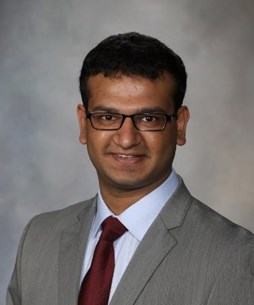Meeting
2021 ASCO Quality Care Symposium

Sidney Kimmel Comprehensive Cancer Center, Baltimore, MD
Arjun Gupta, Laura Sena, Ramy Sedhom, Susan Combs Scott, Amanda Brooks Kagan, Andrew Harris Marple, Jenna VanLiere Canzoniero, Melinda Laine Hsu, Syed Hussaini, Amin S. Herati, Lauren Reschke, Maria F. Antero, Mindy Christianson, Adam F Binder, Allen Ray Sing Chen, Ross C. Donehower, Kristen Marrone
Background: For patients of reproductive age with cancer, counseling regarding reproductive risks associated with systemic therapy and facilitating access to fertility services are essential to quality care. We conducted a quality improvement study to improve rates of fertility preservation counseling at the Johns Hopkins Sidney Kimmel Comprehensive Cancer Center (SKCCC) in Baltimore, MD. Methods: We formed a multidisciplinary team as part of the ASCO Quality Training Program. We aimed to increase the rate of fertility preservation counseling for patients of reproductive age (18-40 years) with newly diagnosed cancer who were initiating systemic therapy from a baseline (June 2019- January 2020) of 36.7% (25/ 68) to 70.0% by February, 2021. Data sources included the electronic medical record and direct verification with patients by phone. We surveyed patients, oncologists, and experts in reproductive endocrinology and urology to identify barriers to optimal care. After considering a prioritization matrix, we implemented Plan-Do-Study-Act (PDSA) cycles. Results: We identified the following improvement opportunities: (1) oncologist under confidence about counseling, (2) oncologist lack of knowledge about local fertility preservation options/ processes, and (3) lack of a standardized referral mechanism to reproductive endocrinology/ urology. The first PDSA cycle was disrupted due to COVID-19; from February 2020-August 2020, we introduced the initiative at oncology disease site meetings (e.g., leukemia). In September 2020, we implemented a second PDSA cycle. Our interventions included (1) presenting the baseline data and fellow-led initiative at Oncology Grand Rounds (attended by 150 staff members), (2) creating and distributing paper and electronic informative pamphlets to oncologists and patients, and (3) implementing an electronic medical record order set. This order set included instructions for providers and patients, necessary laboratory studies, and a referral to reproductive endocrinology or orders for cryopreservation of sperm. It also added the following to a patient’s after visit summary: contact information for a dedicated fertility coordinator, estimated costs of services, and financial assistance programs. Post-implementation (September 2020- February 2021), the percentage of patients who reported receiving fertility preservation counseling increased from 36.7% to 80.9% (38/ 47). A sustained shift in the process was apparent on a control chart. Conclusions: Despite disruptions caused by the COVID-19 pandemic, we demonstrate how a trainee-led, patient-centered initiative improved fertility care services for people with cancer. Ongoing work focuses on ensuring sustainability of change, assessing the quality of counseling, and evaluating the impact on utilization of fertility care services.
Disclaimer
This material on this page is ©2024 American Society of Clinical Oncology, all rights reserved. Licensing available upon request. For more information, please contact licensing@asco.org
2021 ASCO Quality Care Symposium
Poster Session
Poster Session B: Patient Experience; Quality, Safety, and Implementation Science; Technology and Innovation in Quality of Care
Technology and Innovation in Quality of Care,Patient Experience,Quality, Safety, and Implementation Science,Cost, Value, and Policy,Health Care Access, Equity, and Disparities
Quality Improvement Research and Implementation Science
J Clin Oncol 39, 2021 (suppl 28; abstr 237)
10.1200/JCO.2020.39.28_suppl.237
237
C10
Abstract Disclosures
![]() Funded by Conquer Cancer
Funded by Conquer Cancer
2024 ASCO Quality Care Symposium
First Author: M. Kelsey Kirkwood
2023 ASCO Quality Care Symposium
First Author: D'Ambra Dent
2024 ASCO Annual Meeting
First Author: Jie Xu
2023 ASCO Quality Care Symposium
First Author: Edward Maldonado